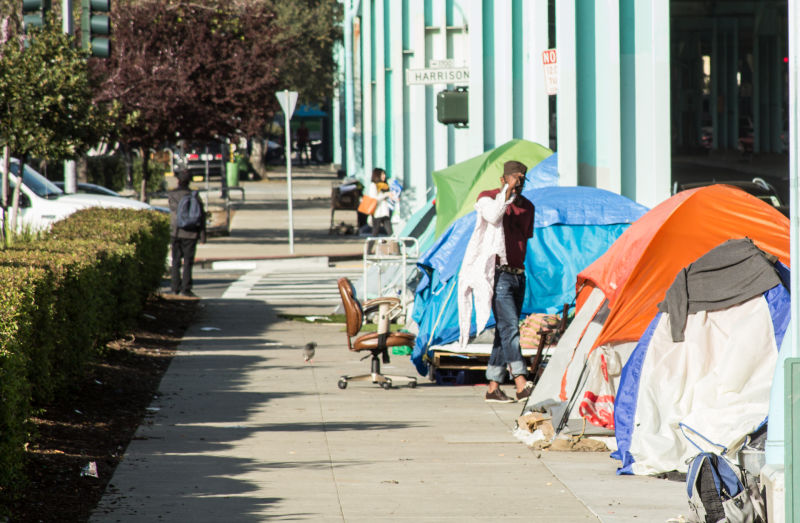"The laws that are on the books are not directly applicable to our tent encampments right now," said Farrell, whose District 2 includes Pacific Heights, Sea Cliff and the Marina. "They are used -- our police code is used, and blocking the right-of-way laws are used -- to really enforce the encampments and make sure they don't grow, but this is something that we wanted to make very specific."
The measure would permit the city to remove tents, provided it offers specific shelter or housing opportunities to the people living there. A tent camp could also be removed if a resident participates in the city's Homeward Bound program -- an initiative under which the city pays for bus tickets for homeless residents who have out-of-town family or friends willing to take them in.
The "Housing Not Tents" proposal would require the city to give 24 hours' notice that it intends to remove an encampment. It would also require the city to store camp residents' belongings for 90 days after a removal.
In announcing the ballot measure, Farrell disputed the notion that allowing people to live in tents is a compassionate option for people who can't or won't find other housing.
"The reality is nobody is getting healthier, nobody is getting better," he said.
Farrell placed the initiative on the ballot with the backing of fellow Board of Supervisors moderates Scott Wiener, Katy Tang and Malia Cohen.
Supervisor John Avalos, a member of the board's progressive majority, blasted the measure Tuesday and accused Farrell and allies of playing politics with homelessness.
“There are not enough shelter beds for all the people living in encampments,” Avalos told the San Francisco Chronicle. “We all know it. So why this legislation? It’s a fallacy, and they are just politicizing the ballot in a desperate move to give moderates some issue to campaign on in November.”
Instead of clearing the camps, which house an undetermined number of the city's roughly 6,700 homeless residents, Avalos and some advocates for the homeless would like the city to provide basic services for them.
KQED's Stephanie Martin Taylor contributed to this post.

